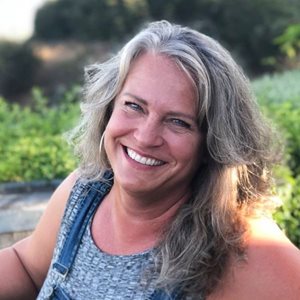By Jennifer McEntee

There are laws and guiding principles to prevent harassment and discrimination in the office, but that’s not enough to let employees feel safe to be their authentic selves.
“A culturally competent workplace goes beyond compliance,” shares human resources expert Sarah Calfee. “Compliance alone doesn’t create equity and a sense of inclusion. There continues to be this need for education.”
Calfee is the president-elect for the San Diego chapter of the Society for Human Resources Management (SHRM) and a Senior Certified Professional certification with an MBA in new venture management from the University of San Diego. She’s also the instructor for the UC San Diego Division of Extended Studies course, DE&I: Creating Inclusive Workplace Environments, in Summer 2022.
Diversity, equity and inclusion, or DEI, is increasingly used to describe policies and programs that encourage representation and participation by different groups of people.
The concept is a step beyond acknowledging that people come in all shapes and sizes – by age, gender, race, culture, religion, sexual identity, disability, etc. DEI workplace training examines the range of differences among people and how to provide equal opportunities and make all people feel safe and welcome.
 “Board members, employers and employees, a lot of times they’re good people with good intentions, but they just don’t get it. We are responsible for ensuring equity and fairness, but we’re not always trained on how to foster that environment,” she said.
“Board members, employers and employees, a lot of times they’re good people with good intentions, but they just don’t get it. We are responsible for ensuring equity and fairness, but we’re not always trained on how to foster that environment,” she said.
To address those organizational needs, Calfee designed her course to be interactive with discussions, group projects, case study analysis, readings and guest speaker presentations to get students thinking.
“We’ll be creating an atmosphere in the class to model in workplaces,” she said. “It will be a safe place to explore our own biases and make mistakes.”
Ideally, the course will culminate with each participant developing a practical, strategic plan they can use as a blueprint in their respective businesses to improve diversity, equity and inclusion, according to Calfee.
“The old concept of ‘political correctness’ is outdated,” she said. “We’ll be working through how to have conversations that are challenging.”
Course topics include traditional and current terminology, cultural competency, allyship, advocacy, anti-racism and conflict resolution.
While human resource professionals are the primary audience for the course, Calfee said any business leader can take the course to improve diversity, equity and inclusion in their workplace. Ideally, the students will reflect a diverse society, with people at varying stages of their careers and from various backgrounds.
“The intention is to encourage the development of programs in teams or groups, bouncing ideas off each other and being creative,” Calfee said. “Everybody has something to offer in this space. It’s not only for people who fit a certain description. Everyone has something to offer and something to gain.”
Learn more about our Human Resources Management certificate. If you have questions, please contact the department with questions at unexbusa@ucsd.edu.
Was this article helpful? Let us know in the comments below.